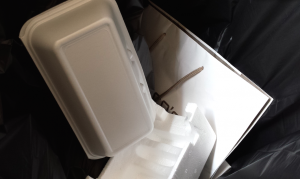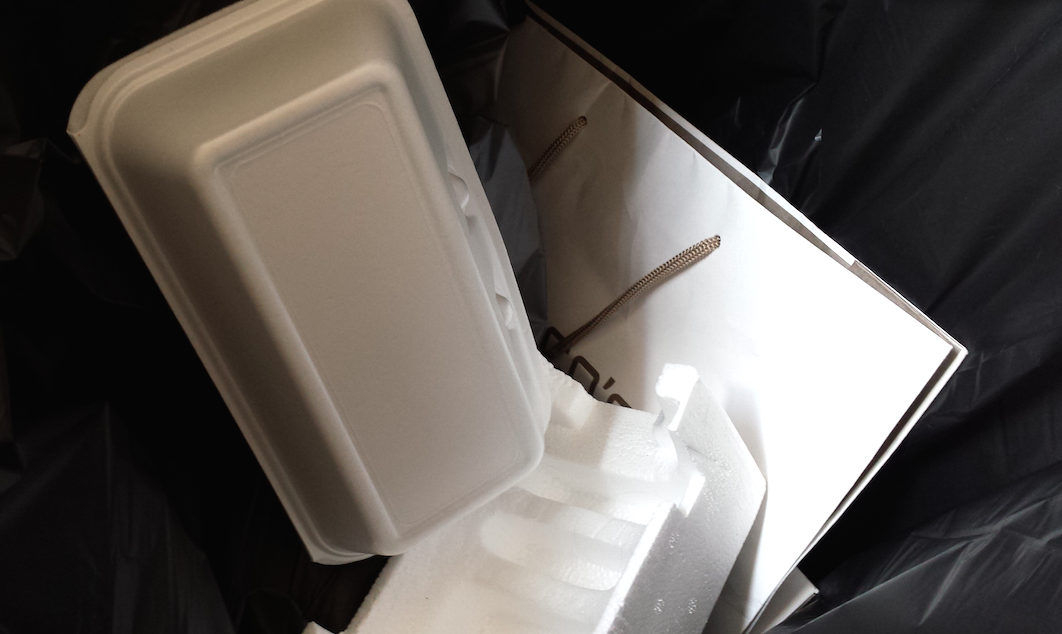A proposed ban to eliminate the use of polystyrene foam containers may affect St. Thomas’ Minneapolis campus.
Minneapolis City Council member Andrew Johnson proposed the ban of the petroleum-based plastic material, commonly known as Styrofoam, which is the trade name for a polystyrene product. Restaurants commonly use polystyrene for coffee cups and takeout containers.
St. Thomas still uses polystyrene cups and packaging for to-go trays; however, Director of Dining Services Tood Empanger said these options will be eliminated soon.

“Hopefully by fall of 2014, everything’s gone,” Empanger said.
According to Empanger, St. Thomas will use a paper product with a polystyrene lining to replace those made entirely from the foam. He also said the university will use corn-based or potato-based plastics, and the new containers will cost three or four times the price of polystyrene.
Junior Elizabeth Runde said that the environment should be a priority.
“Sustainability is pretty important today here in the United States especially, and we should be trying everything that we can to just care for the environment, for the future to come,” Runde said.
St. Thomas began to gradually phase the material out from both campuses three years ago for sustainability reasons, Empanger said.
“Our mission has changed,” Empanger said. “The sustainability piece is important to the university, and it’s also important to (Dining Services). So we’re looking at more of following that mission.”
According to the Earth Resource Foundation, the process of making the foam containers creates air pollution and large amounts of liquid and solid waste.
Empanger said the material is popular because it’s a good conductor of heat, and containers made from paper and plastic only keep food hot or cold for a short amount of time.
Sophomore Peter Moe said there are better ways to address the issue than with a ban.
“One possible solution is to start more of a styrofoam recycling program,” Moe said. “Another possible solution would be to not just ban it, but more to incentivize businesses to eliminate the use via tax credits or some other sort of economic incentive.”
Jamie Bernard can be reached at bern2479@stthomas.edu.



